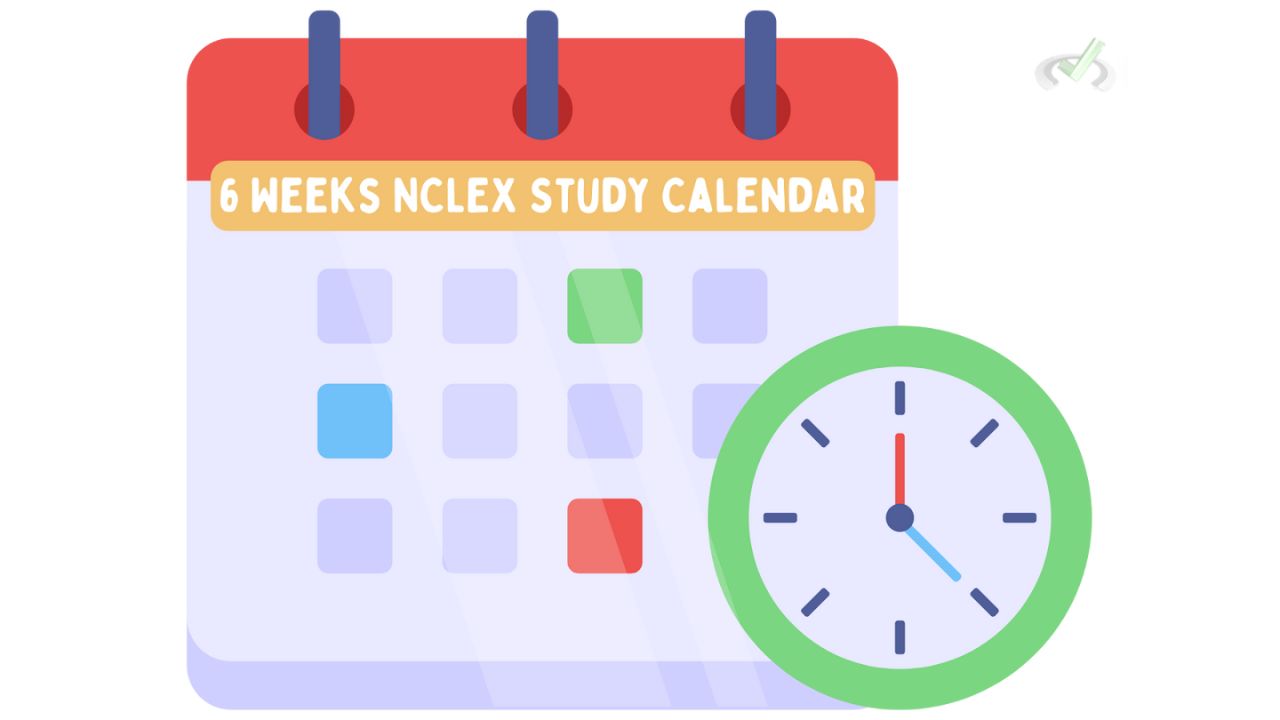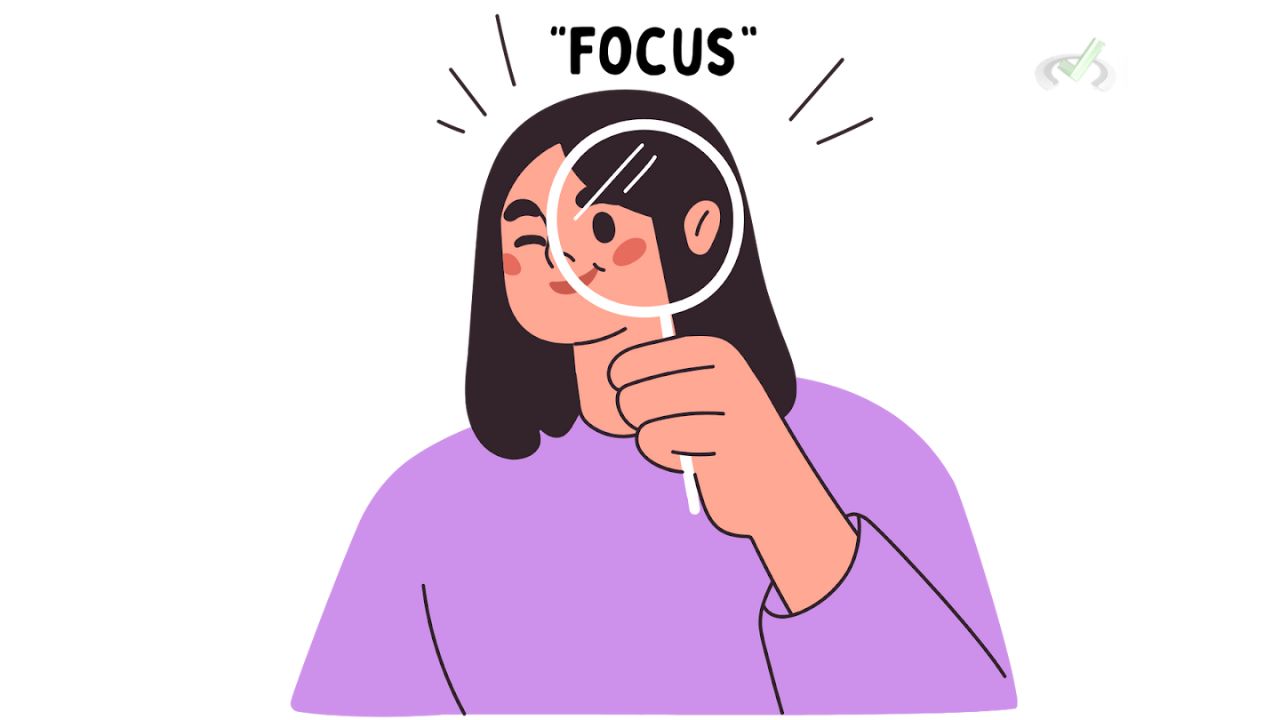
Nearly 15% of NCLEX test-takers don’t pass the first time. But that doesn't have to be you! Most experts say six weeks is the sweet spot for study time, according to Nursing World.
Not too long that you get bored and lose focus, but enough time to actually get a grip on what you need to know. It’s not just about sitting at a desk and staring at your notes for six weeks. It’s all about smart study strategies, and a 6 week NCLEX study calendar will keep you organized, sharp, and not panic-texting your friends at 2 a.m. before the exam.
Ready to nail this? Let’s break down exactly how you’re going to tackle this with a game plan that’ll actually work.
Week 1: Laying the Foundation for Your Study Success
This is where it all starts, and no, we’re not going full throttle just yet. Week 1 is about getting your study plan together, figuring out where you stand, and—most importantly—getting your head in the game.
How to Set Up Your 6 Week NCLEX Study Calendar
First thing’s first: block out your study time. Seriously, grab your phone or planner and treat it like an appointment you wouldn’t dare skip. Your future nursing license depends on it, so it’s pretty important.
Here's how you’re going to lay it out:
Assessing Your Baseline: Start With a Diagnostic Test
Time to figure out what you already know—and what you don't. Start by taking a diagnostic test. This isn’t to scare you, it’s just to get a clear picture of where you’re at.
You’re not aiming for a perfect score here. It’s just to help guide you through the next six weeks so you’re not wasting time on stuff you already know cold.
Week 2: Digging into Content Review—Mastering the NCLEX Essentials

By Week 2, it’s time to dive into the material. But don’t make the mistake of trying to study everything all at once. That’s the fast track to burnout. You need to be strategic.
Prioritize High-Yield Topics on Your 6 Week NCLEX Study Calendar
Here’s the deal: some topics are guaranteed to come up on the NCLEX. Others, not so much. Focus on what really matters to get the most out of your study time. High-yield topics are your friends here.
Key topics to focus on:
Map out your study schedule around these high-yield areas. If you know Safety and Infection Control is going to be a big deal on the test, give it some extra time in your 6 week NCLEX study calendar.
Incorporate Active Learning Techniques
You’ll be surprised how much easier it is to retain info when you’re actively engaging with it instead of just passively reading and re-reading.
Week 3: Mix It Up—Content Review Meets Practice Questions
You’ve done some solid content review. Now it’s time to test what you know—and practice questions are your new best friend.
How to Use Practice Questions in Your 6 Week NCLEX Study Calendar
Practice questions are key to getting the hang of the NCLEX format. It’s not just about knowing the content, it’s about applying that knowledge to real test questions. Plus, NCLEX questions have a vibe, and you need to get used to it.
Here’s the deal:
The Power of Rationales in Strengthening Your Weak Spots
Ever looked at a question and wondered, “Why is that the right answer?” That’s where rationales come in. They break down exactly why one answer is correct and the others aren’t.
Here’s how to make rationales work for you:
Rationales are basically your guide to understanding NCLEX logic, and trust me, they’ll make the biggest difference.
Week 4: Time to Focus on Weaknesses—Turning Your Struggles into Strengths

It’s Week 4, which means you’ve had plenty of time to figure out where you’re strong and where you need some extra work. Time to tackle those weak areas head-on.
Tailor Your 6 Week NCLEX Study Calendar for Weak Areas
This is where things get personal. Your study calendar has to focus on you, so if you’ve been struggling with pharmacology or infection control, now’s the time to double down on those subjects.
Here’s the plan:
This week is all about turning those weak spots into strengths. You’re so close now!
Use Peer Support to Boost Your Understanding
Don’t study in a bubble. If you’re struggling, hit up a study buddy, or join a study group. Explaining tricky concepts to each other is one of the best ways to solidify your knowledge.
Plus, it’s nice to have someone in the trenches with you. Studying solo can get old fast, and peer support keeps things fresh.
Week 5: Simulate the Real NCLEX—Testing Your Endurance and Knowledge
Now it’s time to put everything together. You’ve been practicing questions, studying high-yield topics, and reviewing your weak areas. Let’s see how you hold up under exam conditions.
Full-Length Practice Exams—A Must in Your 6 Week NCLEX Study Calendar
It’s time for full-length practice exams. The NCLEX isn’t just a test of what you know—it’s a test of your endurance, too. Can you focus and stay sharp for 145 questions? Let’s find out.
Here’s how to do it:
Analyze Your Results—More Than Just a Score
After you finish a full-length practice exam, don’t just look at the score and move on. Dig into it. Look at your mistakes, your timing, and your weak spots.
Ask yourself:
This week is about fine-tuning. You’re almost at the finish line!
Week 6: Review and Relax—Fine-Tuning for the Big Day

You’ve made it to the final stretch! Week 6 isn’t the time for cramming—it’s the time for reviewing what you’ve learned, fine-tuning any last-minute details, and, most importantly, relaxing.
How to Approach the Final Week in Your 6 Week NCLEX Study Calendar
This last week is all about balance. You’ve done the hard work already, so there’s no need to stress yourself out by cramming. Instead, focus on staying sharp and confident.
Here’s what to do:
Conclusion: Stick to the Plan and Trust Yourself
You’ve followed your 6 week NCLEX study calendar to the letter, and now it’s time to trust yourself. You’ve put in the time, you’ve done the practice questions, and you’ve strengthened your weak areas.
Now walk into that test room knowing you’ve got everything you need to pass. You've done the work, now go crush it!
